Monthly Journal
November 2024
International Press Review
The most relevant events of the area through international sources

Balkan countries accident leads to new protests in Serbia
BNE Intellinews
Following the death of 15 people and numerous injuries caused by a canopy collapse at the Novi Sad railway station on 1 November, thousands of people demonstrated in Novi Sad and Belgrade last month, calling for accountability. The station had recently been renovated by Chinese and some European companies. Although largely nonviolent, some protests descended into violence. The tragedy highlighted public frustration with the government and the leadership of President Vucic. Eleven individuals, including the then influential minister of Construction, Transport and Infrastructure from 2022 to 2024. Goran Vesic, were subsequently taken into custody in relation to the incident.
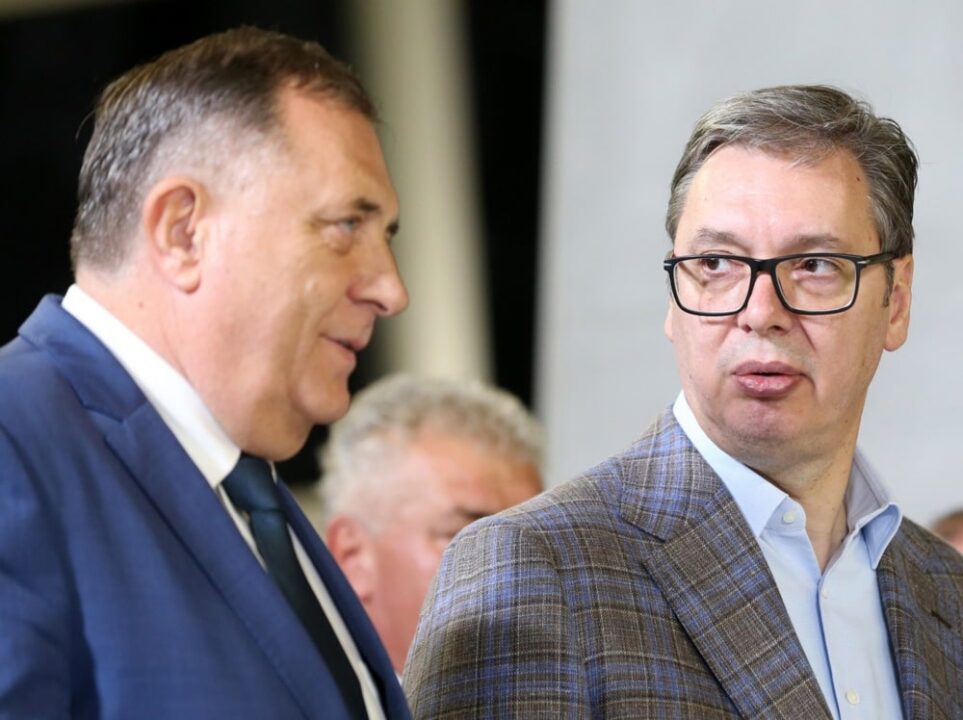
Populist leaders in the Balkans express satisfaction after Trump’s comeback
Balkan Insight
With Donald Trump back in the White House, analysts cautioned that Balkan populist and nationalist leaders like Milorad Dodik of Republika Srpska and Aleksandar Vucic of Serbia may feel more confident in their policies, anticipating Washington’s backing. But there are worries that the USA may as well overlook Europe and the Balkans even more, giving local autocrats more opportunities to foster their political goals.
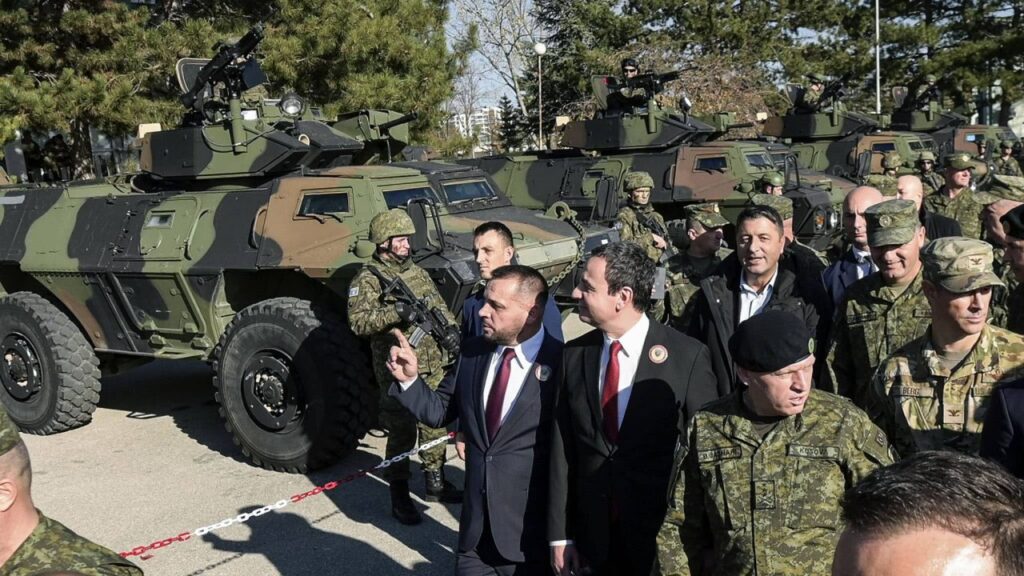
Kosovo to start producing drones and weapons
Balkan Insight
Kosovo announced plans to build its first state-owned arms factory and a drone design lab. Prime Minister Albin Kurti stated that the move ensures the sustainability of Kosovo’s security forces, which have grown rapidly, causing tensions with Serbia. Defence Minister Ejup Maqedonci also confirmed the formation of a commission to finalise contracts, with support from international partners such as the USA and Turkey.
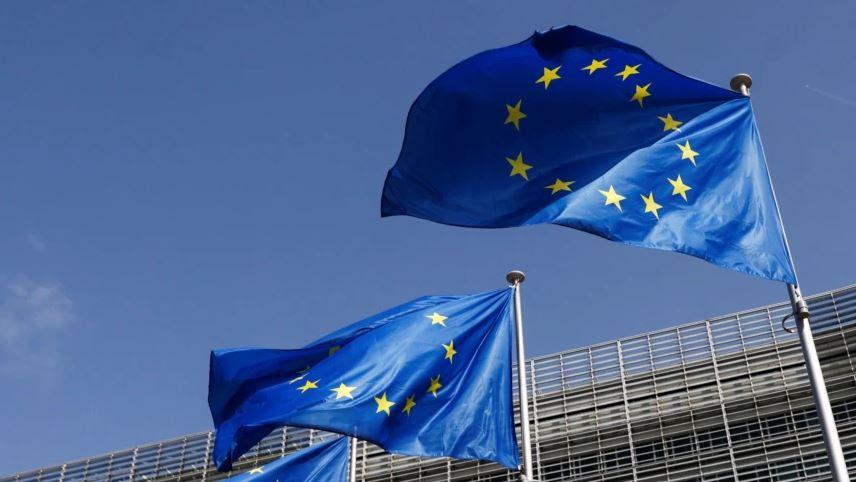
Montenegro and Albania forerunners in the EU integration process
Euronews
Marta Kos, the new EU Enlargement Commissioner, stated that Montenegro and Albania could potentially complete membership negotiations with the European Union in 2026 and 2027, respectively. Speaking in the European Parliament, Kos emphasised her commitment to accelerating the enlargement process, arguing that accession should be based on merit and reforms. Montenegro has opened all chapters and temporarily closed three. Meanwhile, Albania started its first membership chapter on 15 October.
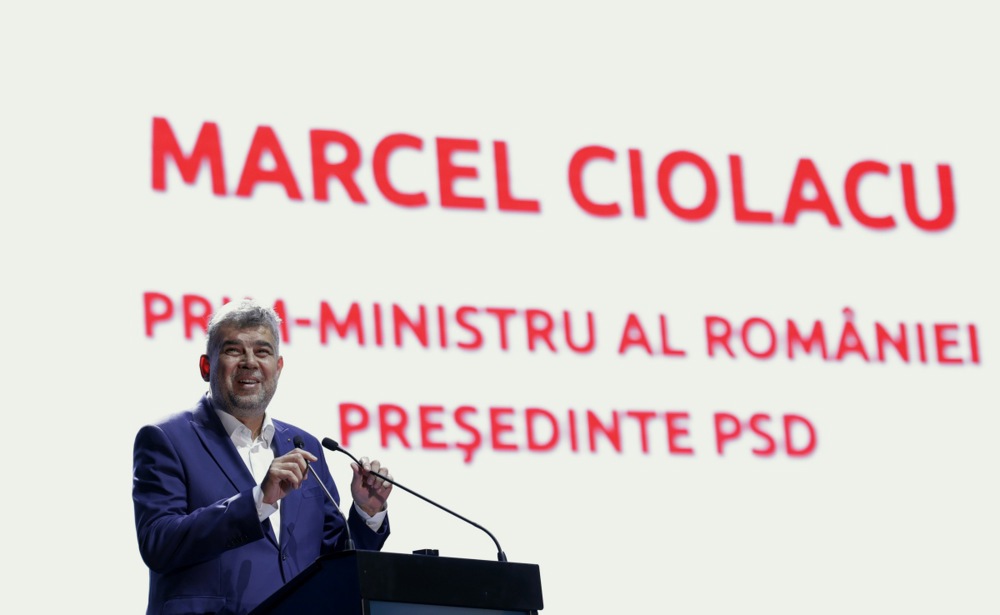
Romania and Bulgaria to fully join Schengen
Euractiv
Romania and Bulgaria will officially join the Schengen Area in January 2025, marking a late success for both EU countries. Their accession came after a compromise with Austria, which had previously opposed their accession due to concerns about irregular immigration and weak border controls. Land border control will remain problematic for some other months, with Romanian truckers experiencing delays ranging from 8 to 16 hours at Hungary’s border and up to 30 hours in Bulgaria. Bulgaria faces similar issues at its borders with Greece and Romania.
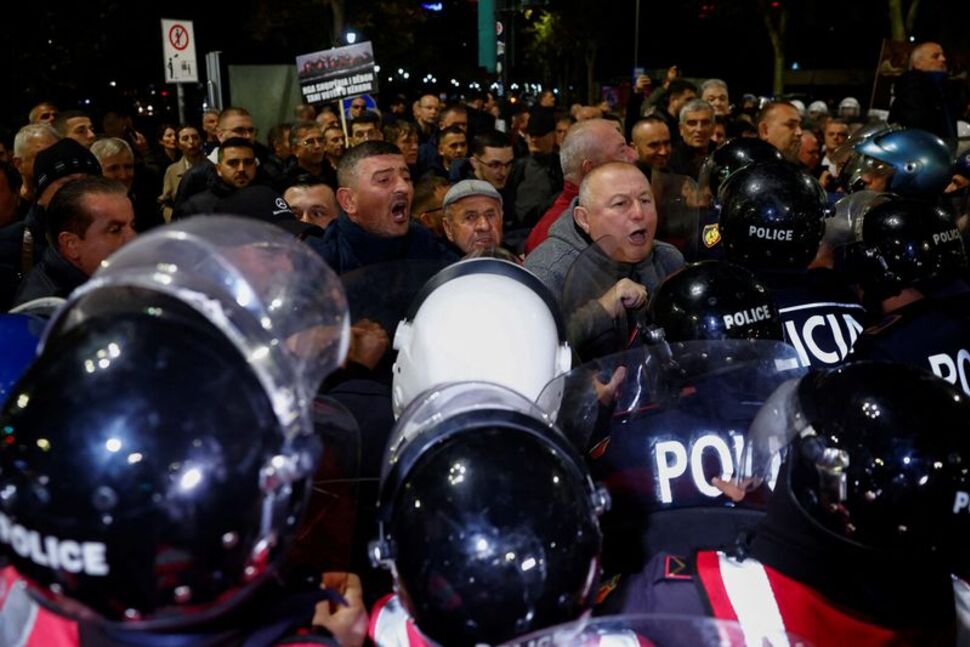
New incidents at protests in Albania
Reuters
Police in Tirana deployed tear gas and water cannons to disperse opposition protesters who were blocking roads, accusing the government of corruption and calling for a caretaker administration to govern until next year’s parliamentary elections. The demonstrations targeted Socialist Prime Minister Edi Rama. Opposition leaders Sali Berisha and Ilir Meta, both facing corruption charges, are accusing Rama of fabricating their cases. Rama rejected their claims, claiming that the opposition is attempting to seize power through violent means. Protests have become a frequent occurrence as Albania approaches its 2025 parliamentary elections.
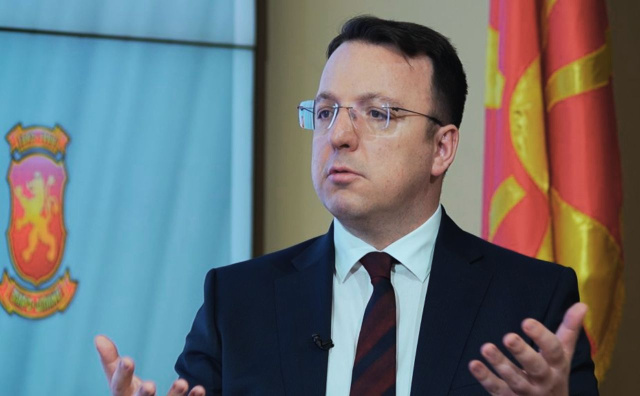
Skopje blames Sofia for the delays in the accession process
Novinite
Aleksandar Nikoloski, North Macedonia’s Deputy Prime Minister, attributed again the delays in his country’s EU accession talks to Bulgaria. However, Nikoloski also stated that negotiations could begin promptly if the EU showed more determination. The Macedonian government, led by PM Mickoski, is opposing Bulgaria’s and EU’s demand to amend the constitution to include Bulgarians as a recognised minority. Mickoski proposed that such amendments take effect only after EU negotiations were concluded, not when they are started.
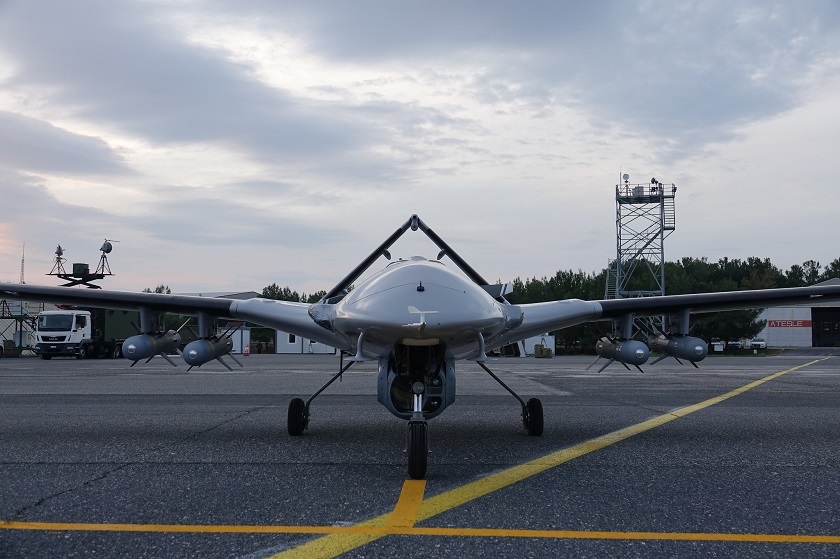
Croatia to buy Turkish drones
Defence Industry Europe
Croatia approved the purchase of Turkish Bayraktar drones as part of a 95 million euros defence modernisation plan. The package includes six drones with electro-optical cameras, weapons, training in Turkey, and support equipment. The Croatian Defence Minister Ivan Anusic stressed the urgency of the acquisition, highlighting its strategic importance for national defence. The government also approved preparatory steps for the procurement of Leopard tanks, aiming at enhancing overall Croatia’s military capabilities.
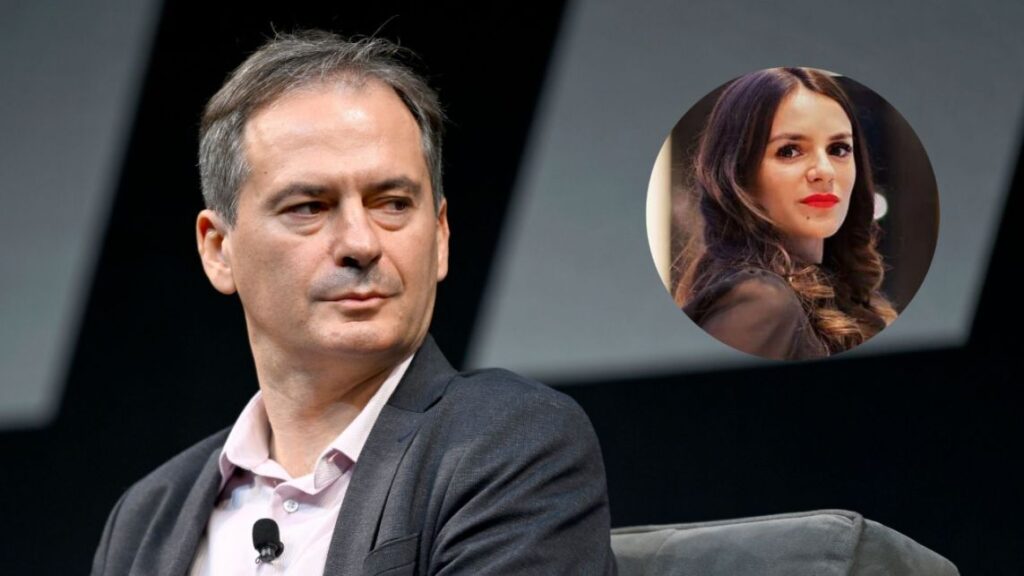
Bulgarians spied on a US base and on a Bellingcat investigator
Reuters
A team of Bulgarians carried surveillance on a US military base in Germany, where Ukrainian forces were being trained, as part of a wider espionage operation for Russia, prosecutors revealed in a London court. The group used false identities, advanced technology and detailed reporting to carry out six operations, in exchange for substantial sums of money. One operation involved surveillance at an army base in Germany in late 2022, where Ukrainian troops were trained on surface-to-air missiles. Another operation targeted Christo Grozev, a prominent Bulgarian investigator for Bellingcat, known for his work on the 2018 poisoning of Sergei Skripal.
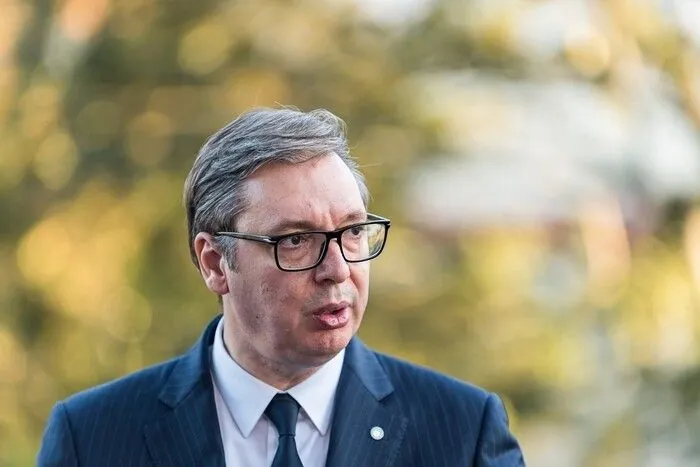
Serbia to work on new bomb shelters in case of nuclear war
UNN
Serbia plans to better equip old and build new bomb shelters in preparation for the possibility of nuclear war, Serbian President Aleksandar Vucic announced on TV Pink. He revealed that the initial assessments from municipal services and the army regarding the country’s bomb shelters were “depressing” in terms of capacity to withstand a nuclear strike. The Serbian leader, in the past very close to Putin, expressed concern that the war in Ukraine was escalating beyond control, warning that increasing tensions could lead to even bigger conflicts.
The Insight Angle

Matteo Bonomi
Dr. Matteo Bonomi is a renowned political scientist and a leading analyst on Balkan affairs. As a Senior Fellow in the “EU, Politics, and Institutions” programme at the Istituto Affari Internazionali (IAI), his research focuses on European integration and the EU’s enlargement policy. He has served as an expert and consultant for numerous institutions, think tanks, foundations, and public agencies across Europe, and his scholarly work covers a range of topics including EU differentiated integration, Western Balkan-EU relations and the political economy of EU enlargement. Bonomi is also an active member of the Balkans in Europe Policy Advisory Group (BiEPAG). He holds a Ph.D. in “Politics, Human Rights, and Sustainability” from the Scuola Superiore Sant’Anna in Pisa, Italy.
What are the main reasons behind the EU’s hesitation to fully integrate Western Balkan countries, despite increased cooperation in recent years? And what potential impact could these delays have on the region?
The EU’s hesitation to fully integrate Western Balkan countries stems from multiple, complex reasons. A primary factor is the EU’s internal divisions and reluctance toward enlargement, that have intensified due to the bloc’s multiple crises.
These crises, including economic, migration, and political challenges, have led to a cautious approach within the EU, as member states prioritise stabilising internal issues over expanding their borders. Additionally, while the EU has strengthened cooperation with the Western Balkans through intergovernmental policies (see the second question, note of the Author), this approach has not fostered significant democratic or economic convergence within the region, leaving many Western Balkan countries short of EU standards.
This delay in full integration could have substantial consequences for the Western Balkans. First, it weakens democratic consolidation and social progress, slowing the region’s development. More critically, the EU’s hesitation has left a geopolitical vacuum that allows other global actors to increase their influence, potentially destabilising the region.
The combination of stalled progress and external interference could hinder the EU’s long-term strategic goals, as third actors gain a foothold near EU borders, challenging its influence in the region.
Can you briefly explain the concept of “external differentiated cooperation” and how it functions as a “maintenance strategy” for the EU, especially during crises? What are the long-term implications for the Balkans from this concept?
External differentiated cooperation is a concept that describes the involvement of non-EU countries, particularly those in the process of EU accession, in certain EU policies without granting them full membership based on consensus-seeking practices.
In a recent article written by Maria Giulia Amadio Viceré and myself (https://doi.org/10.1080/01402382.2024.2401298 ), we analysed how this type of cooperation has been systematically used by the EU in its interactions with the Western Balkan countries to maintain the functioning of its wider system of regional integration, especially during a series of crises — from economic crisis to migration flows to security challenges — over the 2014-2023 period.
Due to the reluctance of some EU member states towards further enlargement, full accession for the Balkans has stalled. However, the EU has consistently engaged these countries through external differentiated cooperation, allowing them partial integration into the EU’s policy framework. This approach enables the EU to manage mutual dependencies that have intensified due to recent crises.
By involving these countries in key EU policies, the EU sustains its regional system and mitigates potential threats to its integration. In the long term, external differentiated cooperation could help maintain stability and align Balkan countries more closely with EU norms, even if full membership remains uncertain. This alignment could facilitate a smoother accession process in the future, should political resistance within the EU decrease.
For the Balkans, it provides a pathway for closer association with the EU, fostering gradual integration and economic alignment while full membership remains a longer-term goal (at least for most Western Balkan countries).
How did the Russian invasion of Ukraine influence the EU’s enlargement policy towards Ukraine, Moldova, and the Western Balkans?
The Russian invasion of Ukraine has fundamentally impacted the EU’s enlargement policy towards Ukraine, Moldova, (and Georgia) and the Western Balkans by making it a security priority rather than merely a political ambition.
In light of Russia’s aggression, EU enlargement is now viewed as essential for regional stability and resilience, binding the EU and prospective members closer together through interdependent security and economic structures. The urgency of the situation has shifted the focus from debating enlargement’s feasibility to finding sustainable ways of integrating these countries without destabilising the Union’s internal functionality.
This strategic shift has sparked discussions on balancing two processes: de facto integration (aligning candidate countries with EU standards and systems even before formal membership) and formal accession. EU policymakers now face the challenge of devising gradual, differentiated approaches that allow these countries to converge economically and politically with the EU while accommodating the Union’s already complex structure. Such differentiation is crucial to maintain the EU’s functionality as new members join, as it allows for flexible, tailored integration suited to each candidate’s progress and capacity.
The upcoming EU institutional cycle is an opportunity to advance this agenda, especially if ongoing negotiations yield a framework for enlargement that balances ambition with pragmatism. Strategic convergence among EU states on core objectives could help break deadlock, build trust, and facilitate compromises, setting a clear path for candidate countries while preserving the EU’s stability.
Given that EU enlargement has been stalled since 2014 under Jean-Claude Juncker, do you think Ursula von der Leyen’s promises of prioritising enlargement are realistic? And when can we expect the first Western Balkan countries to join the EU?
Ursula von der Leyen’s promise to prioritise EU enlargement could be realistic but is contingent on several factors.
Since EU enlargement has been stalled since 2014, von der Leyen’s approach may signal a renewed focus on integration. However, the success of this promise depends on the EU’s ability to manage diverse member interests while finding more effective ways of engagement with the enlargement countries.
Among Western Balkan countries, Montenegro appears most likely to join first, as it has made some progress in aligning with EU standards and its overall impact on the EU would be extremely limited. Other countries, however, may face a slower path due to political or institutional challenges that hinder their readiness for full integration. A dual approach of faster integration for near-ready states like Montenegro, paired with a structured, supportive agenda for less-prepared countries, could prove effective.
In sum, while von der Leyen’s plan is possible, achieving it will require careful political steering, strong conditionality, and sustained EU unity to avoid the fragmentation risks that could further stall the enlargement process. I am not sure that the incoming von der Leyen’s Commission is really ready to provide EU enlargement with all this, regardless Commission Presidents’ promises.
The Key Story
Strategic trends
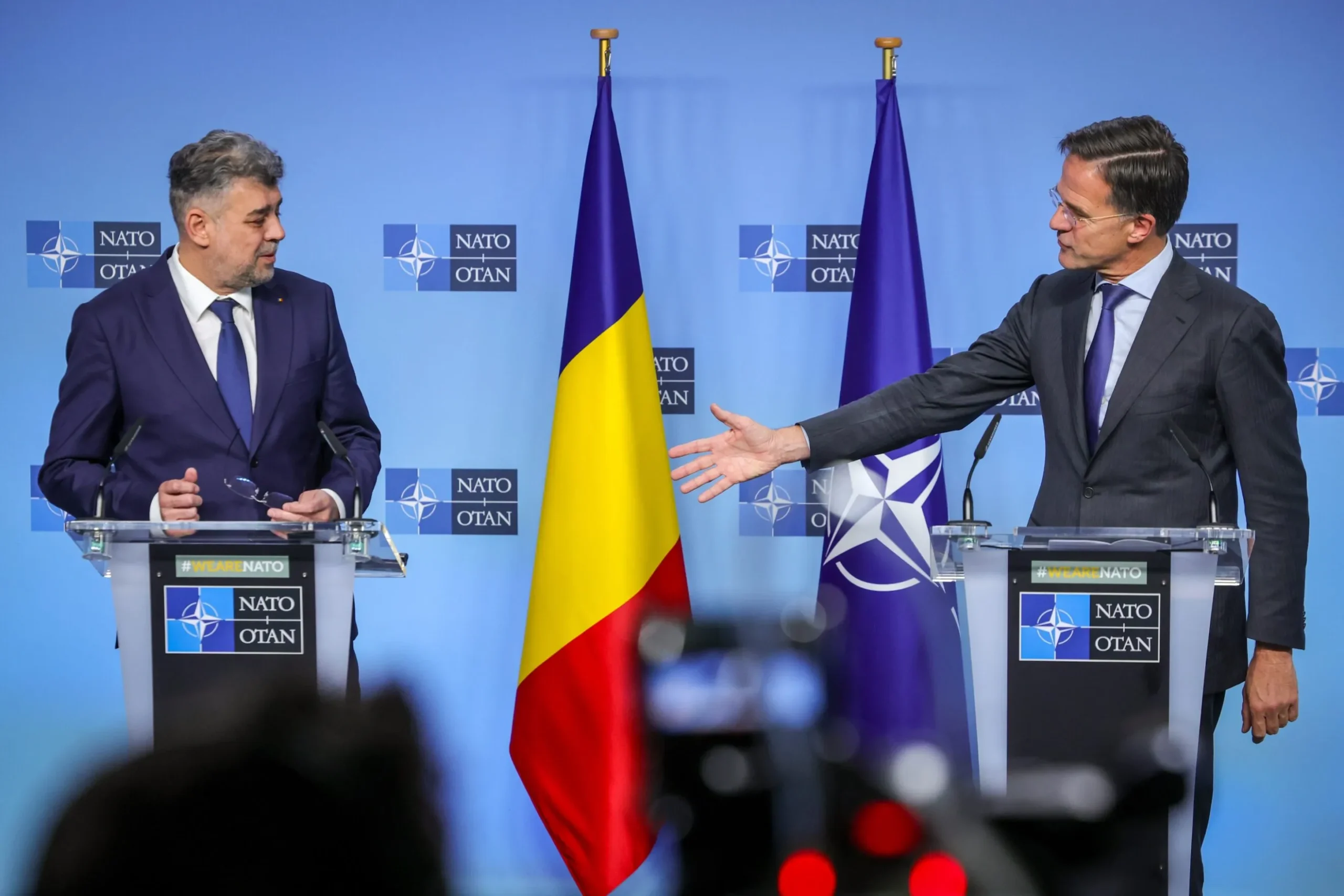
Right-wing anti-NATO and pro-Russian candidate’s victory shocks Romania
The surprising and totally unexpected success of a relatively unknown far-right and pro-Russian politician in the first round of Romania’s presidential elections has sent shockwaves through the country. And it has raised alarm, with growing fears of a potential meddling of Moscow in one of the most significant elections in Europe this year. This unpredicted development highlights as well a potentially shifting political landscape on the Eastern flank of both EU and NATO, with possible implications for the regional stability, the support to Ukraine and the values underpinning the European project.
Romania held the first round of its presidential elections on the 24th of November. Voters were to choose the successor to outgoing two-term president and strong Ukraine ally and pro-Western leader Klaus Iohannis. The vote took place with a parliamentary election scheduled in between, on December 1.
In Romania, the president serves a five-year term, and holds significant decision-making powers in key areas, including national security, defence and foreign policy, and judicial appointments.
All opinion polls had indicated that the current centre-left Prime Minister, Marcel Ciolacu, leader of the country’s largest party, the Social Democrats (PSD), would advance to the December 8 run-off presidential vote. The surveys also suggested that 38-year-old George Simion, leader of the far-right Alliance for the Union of Romanians (AUR), was the most likely contender to join him in the decisive round. Analysts also predicted that Ciolacu would likely win the second-round match-up, leveraging his appeal to moderates and emphasising his experience leading Romania during a period of war in neighbouring Ukraine. However, political analysts did not entirely rule out the possibility of a Simion victory. The far-right Simion is known for his criticism of EU and NATO, the opposition to military aid for Ukraine, his nationalist views, populist rhetoric, and his advocacy for the unification of Romanian-inhabited areas currently located in neighbouring countries.
However, when the polls closed on 24 November, Romanians were left in shock and dismay as they confronted the unexpected outcome of the first round. Both Ciolacu and Simion failed to secure the top two positions needed to advance to the second round. In a shocking turn of events, they were unexpectedly surpassed by far-right independent candidate Calin Georgescu and reformist centre-right leader Elena Lasconi. Georgescu secured 22,9% of the vote, emerging as the frontrunner. Elena Lasconi, representing the progressive Save Romania Union party (USR), followed with 19,18%, narrowly edging out Ciolacu, who garnered 19,15%. Meanwhile, George Simion finished with just 13,8%.
The winning candidate at the first round of the presidential elections in Bucharest, Calin Georgescu, ran independently and his name was until recently relatively unknown on the international and even on local stage. However, Georgescu apparently capitalised on growing public dissatisfaction with traditional parties, leveraging nationalist rhetoric and anti-elite and anti-war messaging.
Georgescu held various positions in Romania’s Ministry of Environment during the 1990s. From 1999 to 2012, he served as Romania’s representative on the national committee of the United Nations Environment Programme. Despite lacking a clear political agenda, Georgescu’s videos on TikTok videos have gained significant traction, amassing millions of likes. According to analysts, his success can largely be attributed to his strategic use of the social network to connect with Romanians and convince them that he was the right candidate.
Who’s Georgescu? He embodies the archetype of the new radical right-wing populist. He speaks in direct terms, rejects Western values, and attacks mainstream media. He has expressed a warm stance towards Russia, stating that President Putin demonstrates love for his country and suggesting that Romania could benefit from Russian “wisdom.” Georgescu has also been critical of the EU, and claimed that NATO would never come to help Romania’s defence in the event of an attack. He has also called for an end to the war in Ukraine, claiming that President Volodymyr Zelenskyy is detrimental to his country. Meanwhile, he has described the U.S. ballistic missile defence system stationed at the Deveselu military base in Romania as a national “shame.”
However, there are doubts that an unknown radical candidate like Georgescu could have succeeded solely through his effective use of TikTok and his controversial messaging. Following the elections, Romania’s top national security officials revealed that they had detected cyberattacks aimed at influencing the fairness of the country’s first presidential election round. While they did not specify when the cyberattacks occurred or what exactly they targeted, the officials suggested that Russia could have been involved.
“Romania, along with other countries on NATO’s Eastern Flank, has become a priority for hostile actions by both state and non-state actors, particularly the Russian Federation, which has a growing interest in influencing Romania’s public agenda and social cohesion,” Romania’s Supreme Council of National Defence stated.
Additionally, Romania’s top court has ordered a recount of the votes cast in the first round of the presidential election, following allegations that the social media platform TikTok gave some “preferential treatment” to Georgescu.
Romania has so far been a key ally in the West’s support for Ukraine, providing crucial logistical assistance by for Ukrainian grain exports and the transportation of military supplies. The ongoing conflict has also increased the strategic significance of the Mihail Kogalniceanu air base on the Black Sea, which is set to become NATO’s largest. However, this dynamic could shift dramatically if Georgescu were to win also in the second round. And take power.
Further News and Views
Attack on water canal in Kosovo leads to a new escalation, Belgrade denies involvement
Sources: AFP, Radio Free Europe, AP
A powerful explosion in Vrage, 60 km north of Pristina, damaged an important water canal and temporarily disrupted water and power supplies to several Kosovar cities and to the country’s power plants on 30 November.
The blast followed two other explosions targeting police and local authority buildings in the predominantly Serb-populated north. Kosovo’s PM Albin Kurti accused “Belgrade and its criminal structures” to be involved in the alleged terrorist act. The Kosovar government backed Prime Minister Albin Kurti’s claims, stating that “initial indications suggest” the attack was “orchestrated by the Serbian state” and announced measures to bolster security around critical infrastructure, including bridges and transformers.
Serbia dismissed the accusations as “premature” and “baseless.” Serbian Foreign Minister Marko Djuric described the attack as “unacceptable” and a threat to regional stability, calling for an internationally-led investigation. He also suggested that the Kosovar government could be behind the blast. Meanwhile, the Serb List, Kosovo’s main political party representing ethnic Serbs, condemned the attack “in the strongest possible terms.”
The European Union and the United States strongly condemned the explosion in northern Kosovo and called for the perpetrators to be brought to justice, defining the incident as a “terrorist” act.
Croatian voters could confirm NATO-sceptic Milanovic at December elections
Sources: AP, ANSA, WPR
Croatia will hold a presidential election on 29 December, with a runoff vote scheduled for two weeks later. This key election, important as the one in Romania, could see the confirmation of the current president, Zoran Milanovic, a populist social democrat who opposes the deployment of Croatian soldiers to a NATO-led mission in Germany, intended as logistical support for Ukraine.
Incumbent Milanovic has announced his intention to run for re-election. He is supported by the opposition Social Democratic Party, while his main challenger is expected to be Dragan Primorac, a candidate from the governing conservative party HDZ of Prime Minister Andrej Plenkovic.
Milanovic and Plenkovic are fierce political rivals. Milanovic’s populist nationalist rhetoric has earned him the nickname “the Croatian Trump.” In contrast, Plenkovic has positioned himself as a pragmatic leader since assuming power in 2016. Opinion polls are suggesting that Milanovic could prevail at the first round against Primorac.
Bulgaria in deep crisis heads to eight parliamentary elections
Sources: Balkan Insight, Euractiv, The Loop
Bulgaria’s political crisis deepened in November following failed coalition talks. GERB party leader Boyko Borissov suggested he would return his government-forming mandate unfulfilled, paving the way for the possibility of an eighth general election in around three years. While GERB topped the most recent parliamentary polls, Borissov, a veteran politician, declared he would no longer seek the position of prime minister, stating, “I don’t want to deal with this ruined country anymore.” The country faced further political gridlock when party leaders clashed, and parliament failed to reach a quorum after six attempts to elect a speaker. Bulgaria’s instability has raised concerns among European partners and the USA, particularly in light of its vulnerability to Russian influence amid the ongoing war in Ukraine.
EU - NATO
Romania invests more than 6 billion to buy 32 F-35 fighter jets
Sources: Janes, Euractiv, Lockeed Martin, World AirNews
Romania has approved a bill to purchase the world’s most advanced fighter aircraft, the F-35, with the first delivery expected in 2031. The bill follows an April 2023 decision by the Supreme National Defence Council to proceed with the purchase, valued at approximately 6,5 billion dollars.
The package includes aircraft, pilot training, flight simulators, and munitions. The US State Department approved the sale of 32 F-35A jets to Romania on 15 September. Funding will come from Romania’s national budget, with possible loans or guarantees from the United States. The F-35 will enhance Romania’s air defence and interoperability with NATO forces. Romania, a NATO member since 2004, shares a 650km border with Ukraine and has experienced occasional incursions of Russian drones.
To strengthen its defences, Romania has already acquired 32 used F-16s from Norway and 17 from Portugal since 2016. The F-35, developed by Lockheed Martin, Northrop Grumman, and BAE Systems, is a multi-role stealth fighter capable of air superiority, strategic bombing, and electronic warfare.
ECONOMICS
Balkan countries increasingly focussing on nuclear energy
Sources: Euractiv, Enerdata, SeeNews, BNE Intellinews
Balkan countries are gradually focussing more on nuclear energy to reduce their dependence on Russia, with Western powers increasingly involved in the process.
On 9 November, Romania announced US funding of over 3 billion for the construction of two new nuclear reactors, set to begin next year. Bulgaria has also started building two reactors with US technology, signing a 350 million contract, making the project irreversible, Bucharest said.
Energy Minister Vladimir Malinov stated that the final cost and economic feasibility will be determined by the end of next year.
Meanwhile, Serbia lifted its 35-year moratorium on nuclear energy on 27 November, marking a significant shift in its energy strategy. The decision follows a memorandum of understanding signed with France’s EDF in April, signalling the start of cooperation on a peaceful nuclear programme for the Balkan country, until today almost fully dependent from Russia in terms of energy supplies.

Stefano Giantin
Journalist based in the Balkans since 2005, he covers Central- and Eastern Europe for a wide range of media outlets, including the Italian national news agency ANSA, and the dailies La Stampa and Il Piccolo.

